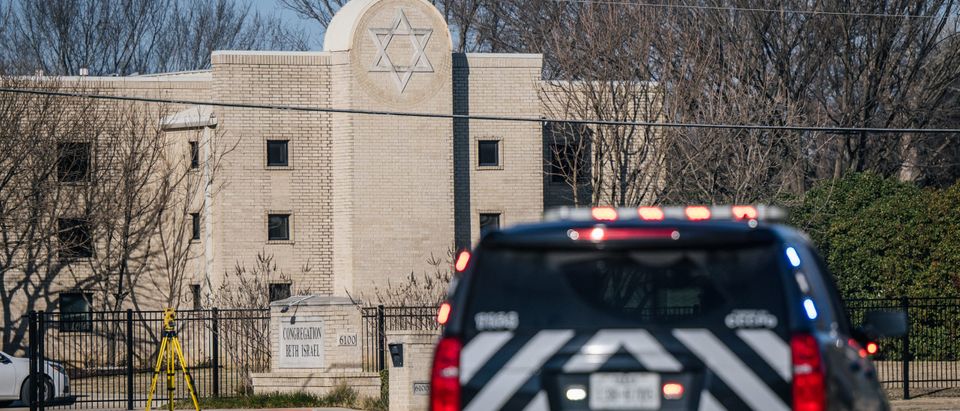Malik Faisal Akram, a 44-year-old British national, took four people hostage at a Texas synagogue Jan. 15 before he was killed by a FBI Hostage Rescue Team.
Akram was allowed entry into the United States despite having an extensive criminal record that the Biden administration and its security agencies failed to flag. While no innocent people died during the hostage situation, the Biden administration could have significantly reduced the chances of this from occurring. The administration must be held more accountable for its failure to eliminate national security threats.
Shortly after taking office, President Biden revoked a Trump-era executive order that sought to enhance the vetting of foreign nationals traveling to the United States. While details on this case are still emerging, the revocation may have granted Akram easier access into the country.
The order called to protect “citizens from terrorist attacks and other public-safety threats” with “screening and vetting protocols” and “information-sharing and identify management” from “foreign governments.”
Given the ongoing threats of global terrorism and the 9/11 Commission recommendations to improve information and intelligence sharing, the Biden administration’s removal of the order is unconscionable, and could have facilitated Akram’s entry into the country.
The Biden administration has done little to address security concerns involving the Visa Waiver Program (VWP) — the program that Akram likely used to enter the United States lawfully. The program allows citizens of 40 countries that are considered low national security threats and have low levels of illegal immigration the ability to travel to the U.S. without obtaining a visa or in-person screening. The selection of countries is determined by the Department of Homeland Security (DHS) and the Department of State (DoS).
A recent Congressional Research Report highlights that the program can present a significant danger as in-person screening is not required and relaxed documentary requirements increase immigration fraud and decrease security. There are also significant concerns about how DHS is not conducting reviews of the current VWP countries in a timely fashion.
These concerns are legitimate. Despite France and Belgium qualifying for the 40-country list, the large-scale terrorist attacks in Paris in November 2015 and in Belgium in March 2016, were perpetrated mainly by French and Belgian citizens.
In its first year in office, the Biden administration could have examined this program more closely and reformed it in a way that allows for enhanced vetting when circumstances dictate greater scrutiny. But it didn’t. It actually took additional steps to reduce vetting this past year, including waiving the in-person interview requirement for a number of immigrant visa applications.
Akram qualified for the VWP despite having an extensive criminal record and numerous red flags — including frequently traveling to Pakistan, a hotbed of Islamic terrorism, and reportedly serving as a member of Tablighi Jamaat— an Islamic organization banned in several countries and known for its ties to terrorism. Akram had previously been listed as a “subject of interest” by Britain’s domestic intelligence service, MI5.
How Akram qualified for this program is baffling. After landing at New York’s John F. Kennedy Airport a few weeks ago, immigration authorities should have been aware of his past and prevented his entry. There isn’t an immediate explanation for this failure, but one shouldn’t rule out new guidelines set by the Biden administration that direct enforcement officers to overlook potential red flags. These policies originated during the Obama administration, when current Homeland Security Secretary Alejandro Mayorkas ran U.S. Citizenship and Immigration Services (USCIS), and imposed a “get to yes” policy, demanding that agency personnel ignore evidence of fraud and approve visa applications.
While many elements of the case are still developing, it is clear that the Biden administration should be held accountable for dismantling safeguards that might have prevented Akram from entering the country. It shouldn’t have revoked an executive order that enhanced vetting and screening of foreign nationals. It should have made addressing vulnerabilities of the VWP a larger priority given the national security threats it has already created at the border. On a more basic level, immigration authorities at John F. Kennedy Airport should have already had intelligence on Akram and never allowed his entry.
What happened in Colleyville shows that the United States must strengthen the vetting process and ensure that corrective action be taken to mitigate any future threats.
Matthew Tragesser is communications manager at the Federation for American Immigration Reform (FAIR) in Washington D.C.


